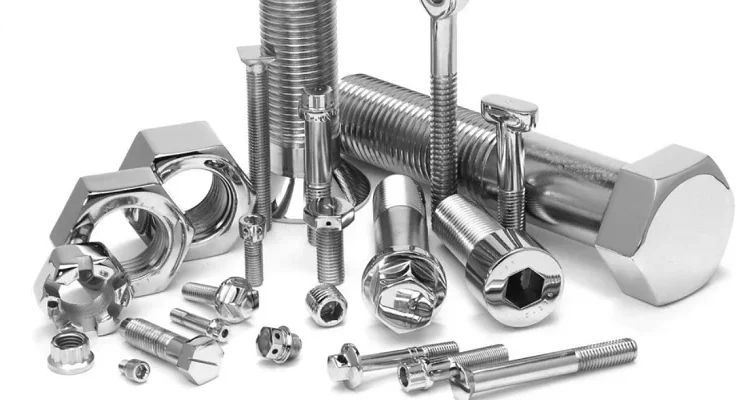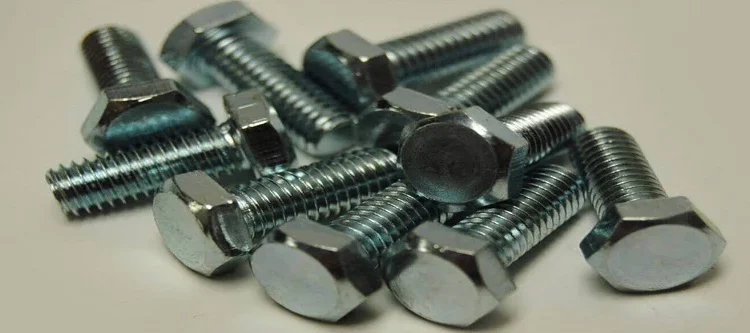
Types Of Fasteners
Fasteners include screws, bolts, rivets, and more. For example, the Boeing 747 uses 6 million solid rivets. Choosing the right fastener requires considering the material, strength, and application environment.
Types of Nails and Their Uses
Main Categories: Common nails, ordinary iron nails, steel copper nails, stainless steel screws, and threaded nails.
The price of stamped iron nails is about $10 and they are widely used in Carpentry Engineering. According to data, 50 billion screws can be produced in a year. Compared to using ordinary iron nails in carpentry applications, the installation speed is increased by 25%.
Steel nails priced at $15 per thousand, mainly used for concrete or hardwood materials. There is an old saying among construction engineers: “Steel nails are essential for high-strength projects.” Using steel nails can increase construction efficiency by 30% or more.
Copper nails are often used in shipbuilding and other outdoor applications, priced at about $50 per thousand. The iconic shipbuilder Hatteras Yachts replaced copper nails in its flagship models to provide longevity and hull security, saving 20% in maintenance costs.
Stainless steel nails are priced at $30.00 per thousand, recommended for use in high humidity or corrosive environments. In high humidity environments, their service life can reach 20 years – more than three times longer than traditional iron nails.
Threaded nails are priced at $20 per thousand. For heavy-duty wood structures, metal-connecting threaded nails can increase structural connection strength by 20%, while reducing material waste by about 20%. Thags privately said, “Threaded nails are… threaded nails!”

Types and Uses of Rivets
Rivet types mainly include solid, semi-tubular blind, explosive, and closed (sealed) types.
High-strength connections and solid rivets are priced at $25 per thousand. Solid rivets are key components in Boeing aircraft manufacturing, with about 6 million solid rivets used on each Boeing 747 plane, simulating the look of thousands of rivets as shown below.
Semi-tubular rivets – suitable for medium-strength connections: $20 per 1,000 semi-tubular rivets: Assembly time is reduced by 30%. The diameter of semi-tubular rivets typically reaches up to 1/8 or 9/32 inches. Semi-tubular rivets can save 15% of production costs for automotive parts manufacturers.
Blind rivets cost about $30.00 per thousand and are preferred in applications where rapid assembly or efficient connections are crucial. Using a designed screw system can increase assembly speed by 40%, thus reducing the number of tools used. Ford Motor Company extensively uses blind rivets in production to reduce time and labor costs associated with assembly.
Explosive rivets, costing $40 per thousand, are a new product that ensures fittings remain fastened under high vibration conditions. Explosive rivets in railway engineering improve track stability.
Blind rivets, costing $35 billion per thousand, are used for connections on both sides. Aerospace engineers note: “Using blind rivets in aerospace structures helps improve construction efficiency and safety.” Airbus’s A320 series aircraft is an example, extensively using blind rivets to ensure fast and safe assembly.
Classification and Applications of Screws and Bolts
Main categories of screws and bolts: wood screws, self-tapping mechanical screws, expansion bolts, hex-head bolts.
Wood screws cost $12 per thousand, only used for wood connections. Circular5 round wood screws, furniture manufacturers state that using suitable Circular56 round wood handrails can increase the stability and longevity of furniture, reducing material waste by about 40% on average.
You can purchase self-tapping screws for $20 per thousand, capable of cutting threads in hard materials. Using self-tapping screws can reduce production costs by 15%, and increase strength input by 20% through connections between components. In its aviation components, the famous manufacturing company Boeing almost always uses self-tapping screws to ensure reliable and stable connections.
Machine screws are priced at about $18 per thousand, used in applications requiring the fastening of metal parts together. Due to improved assembly accuracy and efficiency, the application of machine screws in high-precision machinery manufacturing can achieve over 5% time cost savings.
Expansion bolts with a tensile strength of 2,000 pounds cost $50 per thousand, suitable for high-strength but easily detachable applications. Using expansion bolts makes engineering work more reliable, thus saving up to 20% in maintenance costs and greatly improving the safety and stability of building structures.
They include a range of 6 and low hex-head bolts, priced at $70,000, commonly used in heavy machinery or steel structure projects. Hex-head bolts are undoubtedly high-strength and reliable connectors in bridge construction. Engineers estimate that hex-head bolts will break at 50.



